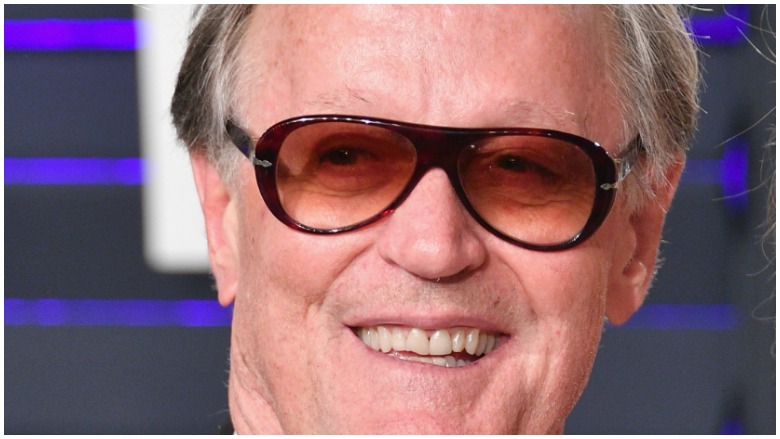
Getty
Peter Fonda has died at age 79. According to People, the family confirmed the news in a statement that said the actor died after suffering respiratory failure due to lung cancer.
“It is with deep sorrow that we share the news that Peter Fonda has passed away,” the family said.
They continued, “[Peter] passed away peacefully on Friday morning, August 16 at 11:05am at his home in Los Angeles surrounded by family… The official cause of death was a respiratory failure due to lung cancer… In one of the saddest moments of our lives, we are not able to find the appropriate words to express the pain in our hearts. As we grieve, we ask that you respect our privacy.”
Peter is the only son of actor Henry Fonda and his wife Frances Ford Seymour. He is the younger brother of actress Jane Fonda.
Peter studied acting in Omaha, Nebraska, and later attended the University of Nebraska Omaha. In the early 1960s, he scored work on Broadway in the show Blood, Sweat and Stanley Poole. His first film came in 1963, in the movie Tammy and the Doctor, followed by a supporting role in The Victors. He followed his films up with guest star roles in TV shows like Channing, Arrest and Trial, The Alfred Hitchcock Hour, and 12 O’Clock High.
He is perhaps best known for his work in the 1968 film, Easy Rider, which he co-wrote, produced and starred in. The film was directed by Dennis Hopper. In 1969, Fonda was nominated for an Oscar for Best Original Screenplay for the movie. He went on to earn a nomination for the Oscar for Ulee’s Gold in 1997.
In 1999, Fonda won the Golden Globe for Best Supporting Actor for his work in The Passion of Ayn Rand.
In a 2018 interview with Parade, Fonda sat down to discuss his career. Asked if he ever felt that the counterculture roles he’s known for acted as a hindrance, or helped his career, he responded, “I think it helped my career, because it caused a question to be asked about what is it that I’m trying to say by doing this role. What is this character actually bringing to us? I did not-counterculture roles, and though they were interesting and some of them very rewarding, it was when I came into the counterculture that I came into my stride like a runner. You get in that stride, and you can lock yourself in for that long-distance run. I think that the counterculture attitude, because that’s what was happening at that time, those roles were more interesting than the toe-the-line type.”
Asked if his later trials living in Hawaii and Montana were an escape from the business, he said, “No, although that’s how it was read by a lot of people. I just wanted to go sailing. Life here is very stressful. I think one of the most stressful things there is to do is act. Writing and directing, they’re very powerful, and photographing and recording, they’re all energetic and powerful positions, but the stress is on the actor in all the medias: stage, film and television. It’s very stressful, and getting out on the sea is very non-stressful. So I was able to go out, sail, come back, do a couple films, go out and sail, come back.”